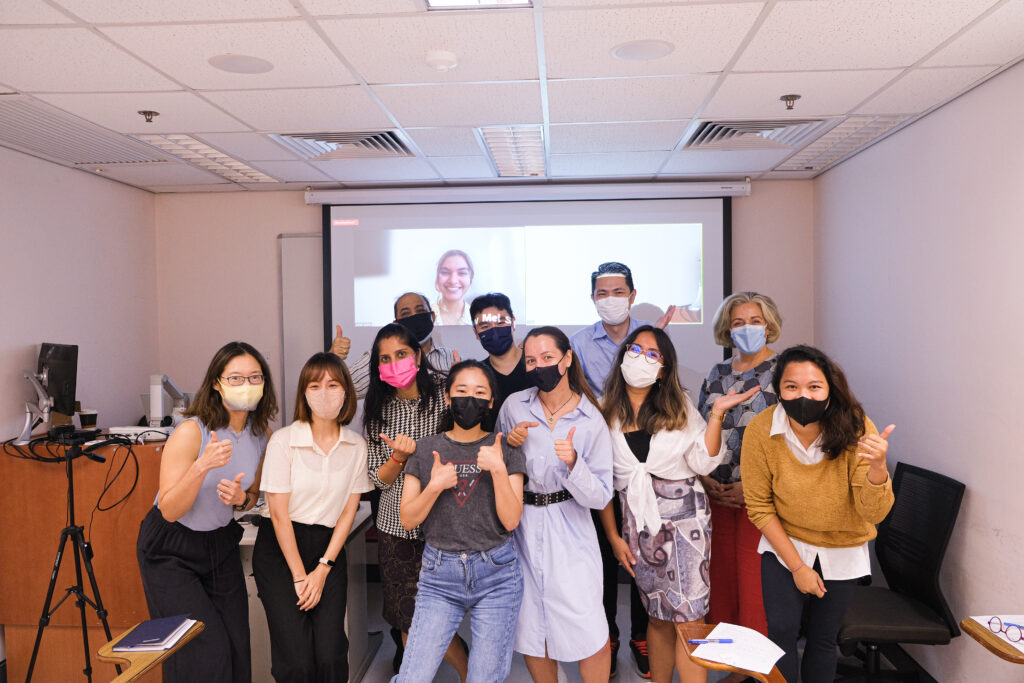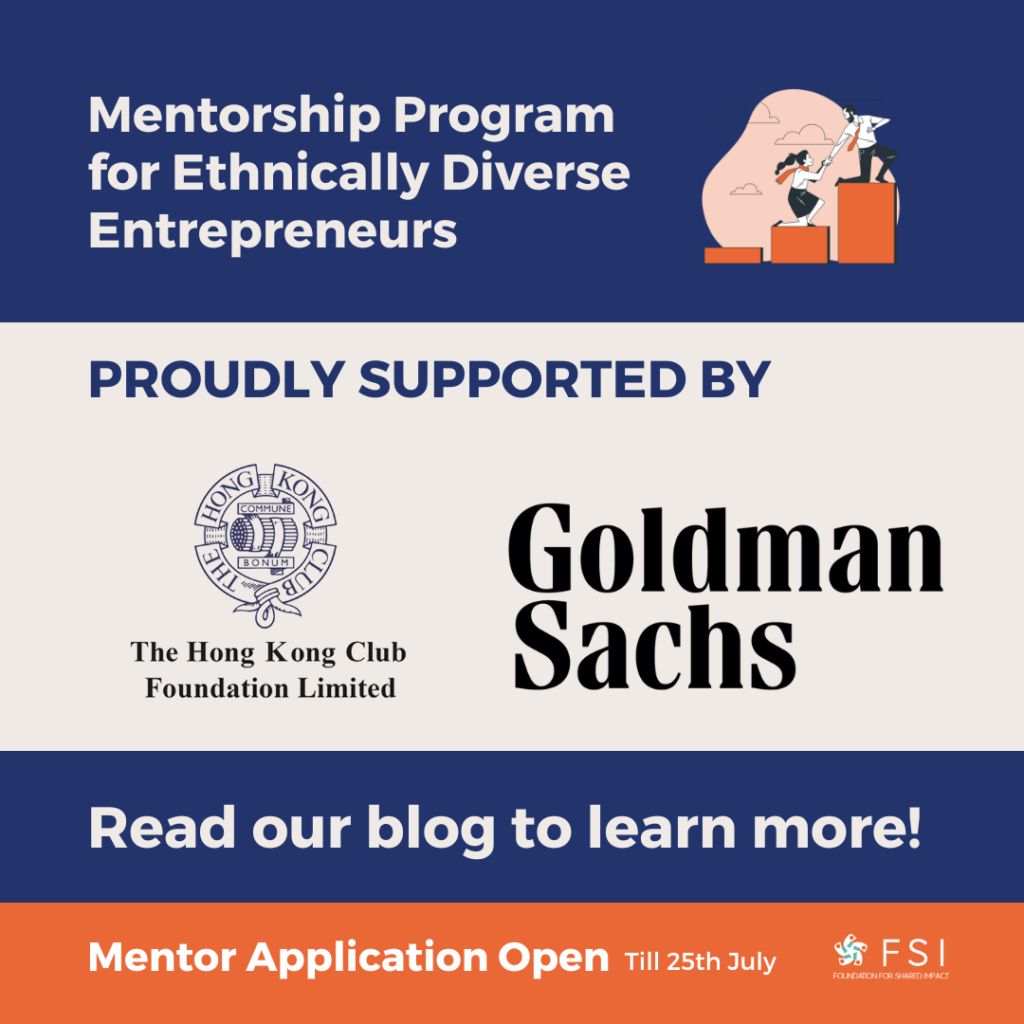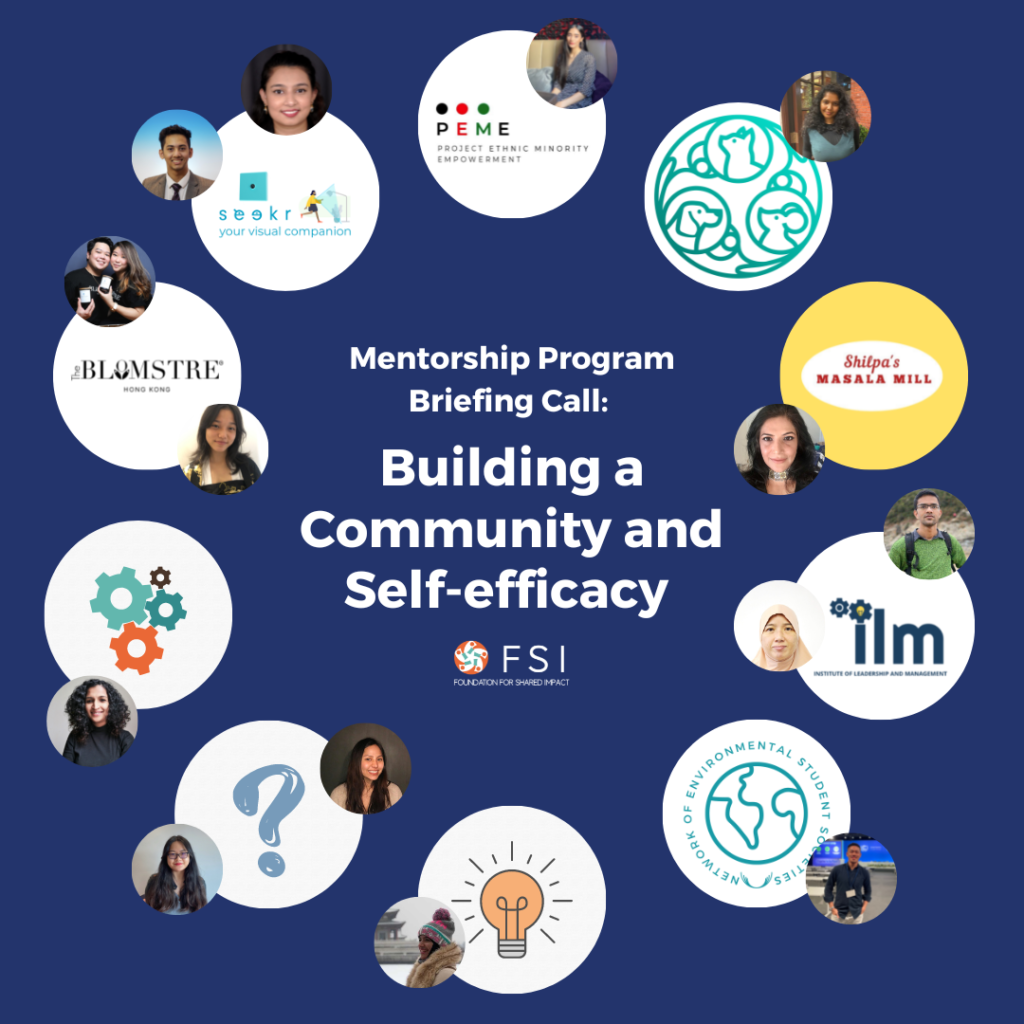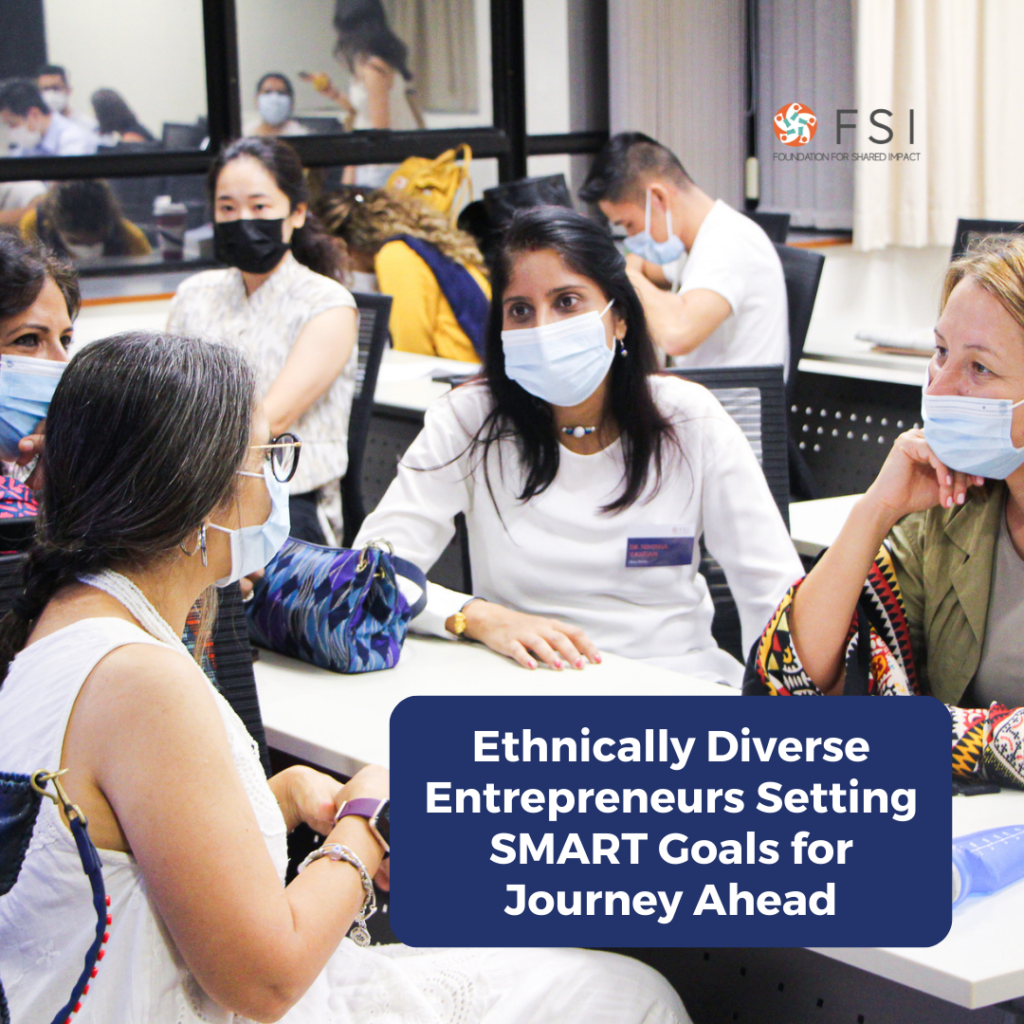What is mentoring? How is it different to coaching? And what makes a good mentor who can make the experience as valuable to them as it is to their mentees?
As the 10 mentors of our Mentorship Program for Ethnically Diverse Entrepreneurs are being matched with the mentees who can benefit from their expertise and knowledge, we held two workshops to equip them with the hard and soft skills to be an effective mentor and role model.

At the workshop on 20 August, Josianne Robb, professional certified coach at ICF Hong Kong Charter Chapter and Managing Director at Adaptologie, and Leontine Chuang, Grants and Programs Adviser (and former CEO) at the American Club Foundation, joined our panel discussion to share their insights and personal stories on mentoring. Here are some of the takeaways.

Mentors Are Not Meant to be All-knowing
More often than not, mentors may feel that they are not doing their job right when their mentee asks them something that they don’t know. To this, Leontine said, “As a mentor, you are not meant to be all-knowing, and oftentimes, you may not be the subject matter expert. It’s okay to tell them that you don’t know. What you can share is your thought process as you work through that challenge.”
It’s Okay to be Different
And it’s okay, too, said Leontine, even if you are different to your mentee, whether in terms of age, ethnicity and race, gender etc. “During my second official mentorship program, I served as a mentor for an NGO that was working on a project on gender equality. I was matched with a university student, who was a transsexual and very different from who I am. But that’s okay. I learned so much from her, and she from me. So at the beginning of the mentorship it’s really about getting to know each other and active listening, so that you can identify your goals for the mentorship program.”
Take a Non-judgemental Approach
For mentors who are able to develop a great connection with their mentee, Josianne cautioned on the risk of being emotionally involved.
“The fact that you have committed to helping your mentee will result in your feeling that you want to be part of their success. For me, there is a danger in doing that,” said Josianne. “You are responsible for the process of the mentoring, but you are not responsible, emotionally or physically, for the outcome of the mentoring process. You would want them to succeed, of course, but you will need to learn to draw a boundary. It’s got nothing to do with you whether they succeed or not – it’s their journey and their set of decisions. All you can do is do your mentoring the best you can.”
It’s also dangerous, said Josianne, when mentors start judging what their mentees are doing. “When your mentee disagrees with your suggestions, it is not something to be frustrated with. It’s like parenting: You need to help them to learn their lessons. It doesn’t mean that you are wasting your time, it’s just part of the experience.”
Which makes mentoring different to coaching. Said Josianne: “What coaching does is supporting that person on a more emotional basis. It’s about helping them through a set of structured conversations, based on questions.”

How to be an Effective Mentor?
There are five essential soft skills that mentors should practise, as highlighted by Vivian Seo, Program Manager at Foundation for Shared Impact, at the beginning of the workshop: Active listening, Communicating with empathy, Being encouraging, Providing constructive feedback, and Demonstrating professionalism.
Here, drawing on her experience as a professional certified coach, Josianne added her nuggets of wisdom:
- Make sure you do your homework: Preparation is important, both from your perspective and your mentee’s perspective, so that your mentoring session is as valuable for you and your mentee as possible, and that it doesn’t become a talking show.
- Be very clear when setting your mentee’s expectations: Make sure they know that when they need you, they will come with a set of challenges and questions. And when you come in, you need to come in with your A game.
- It’s not about you: We talk about diversity and inclusion, and that includes the different ways that people make their decisions. It’s hard to watch them go through difficult situations, but you want to be in a place where, for your own development, you won’t judge the decisions that your mentees make.
Mentoring is Mutually Beneficial
Coming with its fair share of challenges, mentoring can also be mutually beneficial to both the mentor and the mentee. And this is readily agreed by Leontine and Josianne.
“I love mentoring, because it also broadens my perspective, especially when I’m mentoring people from a younger generation,” said Leontine.
“I have always been fiercely independent,” said Josianne. “Mentoring other people is a reminder that I don’t have to go about these things alone.”
To the mentors of our Mentorship Program for Ethnically Diverse Entrepreneurs, we hope you are able to take the insightful sharing from the session as you start your mentoring journey. Remember, every mentee is unique. Appreciate the similarities and differences between you and your mentees, as you broaden their perspectives while the experience does yours, too.



